South Ossetia - political crisis over border demarcation
Border delimination crisis in South Ossetia
There is a political crisis in South Ossetia, the reason for which was the issue of delimitation and demarcation of the border with Georgia. The opposition claims that President Anatoly Bibilov agreed to the transfer of territories to Georgia, accuses him of “treason”, and some even call for his impeachment. Bibilov himself denies the accusations. The crisis around the border issue actually turned into a conflict between representatives of the previous and current authorities.
The conflict had been brewing for a long time and culminated in November-December 2021, when the opposition accused President Anatoly Bibilov of surrendering national interests.
This refers to the documents on the basis of which the border of South Ossetia should be defined. As it turned out, the president’s opinion on this matter is at odds not only with the opinion of the opposition deputies, but also with the members of the state commission on delimitation and demarcation of the border, created by his own decree.
- Zone of fear: report from the Georgian-Abkhaz dividing line
- What could Georgian-Abkhaz negotiations look like? An Abkhaz take
- “We played football with Ossetians in that field” a report from a divided village
The parliamentary opposition and members of the commission argue that the president tried to “give” Georgia 200 square kilometers – or 5% of the territory belonging to South Ossetia. Anatoly Bibilov presented a map showing the designation of the border to parliament in 2019, along with the law on the state border.
The opposition and members of the commission insist that the main document defining the borders of South Ossetia is “Decree No. 2 of the All-Georgian Central Executive Committee of Soviets and the Council of People’s Commissars of the Georgian SSR of April 29, 1922″ On the formation of the autonomous region of South Ossetia”. According to this document, the present border of South Ossetia should cover more territory more than the existing border does, and more than the border defined by the law proposed by the president.
However, Anatoly Bibilov claims that this decree has no legal force, since South Ossetia entered the USSR within borders other than those indicated in the document. In addition, the Russian Federation also recognized the independence of South Ossetia in 2008 within the Soviet borders that existed in 1990.
The origins of the conflict
At one time, issues related to the state border of South Ossetia with Georgia in Tskhinvali were submitted to the introduction of state commissions created by the presidents of South Ossetia.
The first commission was established by President Eduard Kokoity in 2009 and worked until 2012. It was headed by the late Boris Chochiev.
In 2009, Chochiev said that South Ossetia did not have its own maps, so the South Ossetian side, when carrying out work on the border, was guided by the maps of 1984, and not by the documents of “Decree No. 2”.
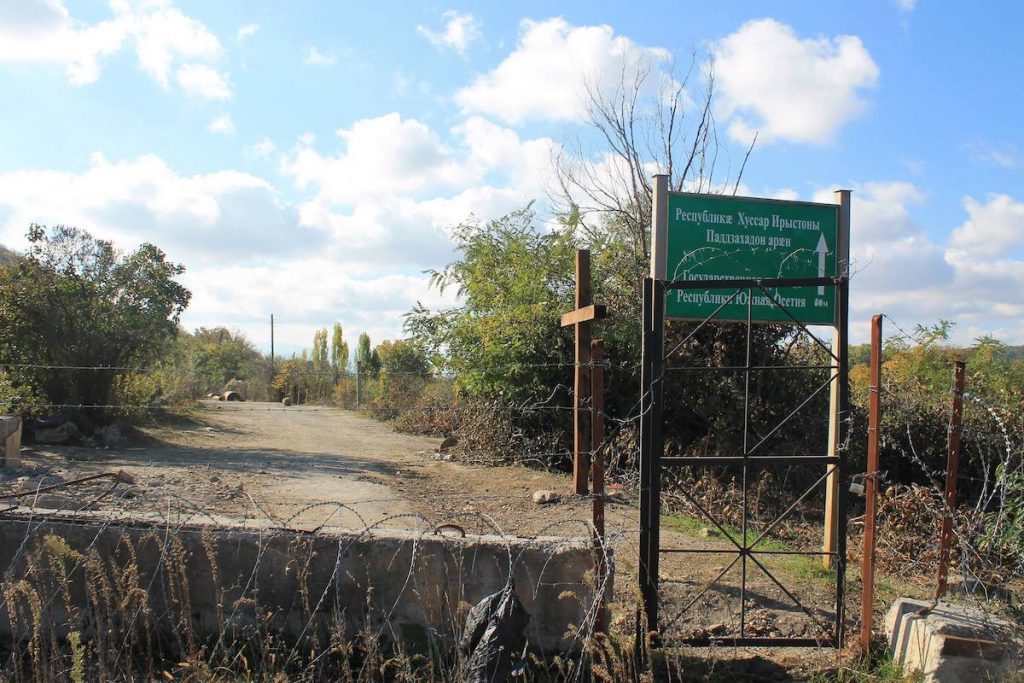
In 2012, after the change of power in the republic, the new president, Leonid Tibilov, issued a decree on a new state commission – the second in a row – headed by ex-foreign minister Murat Dzhioev.
The commission had at its disposal a description of the territory of the South Ossetian Autonomous Region in accordance with the Decree, but allegedly there were no accurate maps for the description. The second state commission, headed by Dzhioev, ordered in Pyatigorsk, in the North Caucasian aerogeodetic enterprise, not a map describing the borders according to Decree No. 2, but a description of the state border of the Republic of South Ossetia with Georgia according to the available maps. The contract was signed in 2015, the work was completed by the end of 2017.
As Dzhioev himself said in 2020 in an interview with the Eurasia Daily, “Our commission approved this description with the appropriate changes. But in order for this definition of the border and the map that exists to be adopted, it is necessary that they be legislatively enshrined in the relevant law. Until parliament has approved this law, this description has not been approved, since there is a different understanding of the situation”.
Thus, since 2009, members of the commissions have been complaining about the lack of maps and documents. Officials say there are no official maps describing the state border.
There are also Soviet maps of the 1980s of the USSR General Staff, which were used by Russian border guards. However, these maps also differ, and on some of them, the most relevant and painful for South Ossetia today, the section of the border near the village of Tsnelis is not marked at all. On others, the border runs west of the Prona River, which divides the village.
The discrepancies are explained by the fact that the maps were compiled during the USSR period in different institutions, and supposedly the differences for the compilers of the maps were not fundamental, since they were talking about the administrative boundaries within one state – the USSR.
In 2017, power in the republic changed again and Anatoly Bibilov became the new president.
In 2017, by his decree, Bibilov created a new, third commission of the government on the delimitation and demarcation of the state border of South Ossetia with Georgia, and appointed Murat Dzhioev as its head again. This commission approved the description of the border, ordered in 2015 in Pyatigorsk and, subsequently, in 2019, presented the document to the president, who, in turn, forwarded it to parliament.
Before these documents were sent to Bibilov, they were studied by the State Security Committee of South Ossetia. The parliament then refused to vote for the description. According to it, supposedly, the republic would have ceded more than 5% of its territory.
By that time, in August 2019, in the area of the South Ossetian village of Tsnelis, Georgia set up a checkpoint, which South Ossetia considers illegal and seeks its removal through negotiations at the Geneva Discussions platform.
In the spring of 2021, Bibilov ordered the creation of a new, fourth state commission on the border demarcation. Majoritarian deputy, ex-employee of the State Guard Garry Muldarov was appointed chairman of the commission.
The new commission also includes opposition deputies who now accuse President Bibilov of “betraying the interests of South Ossetia”.
The essence of the disagreement
President Bibilov considers the opposition’s reproaches untenable and accuses opponents of being biased. According to the president, the commission headed by Muldarov was created by Bibilov himself and is accountable to the head of state.
However, the commission did not report to the president on the work done and, bypassing the head of state, pushed the intermediate and controversial results (according to Biblov) to be discussed in parliament, thereby creating dubious news for the internal political struggle.
Bibilov explains that the opposition is mistaken, and if, following its logic, the borders described in the 1922 Decree are taken as a basis, the republic loses part of its present territory.
The positions of the parties are diametrically opposite and the opponents do not want to listen to each other. On December 30, 2021, Bibilov arrived at the parliamentary session to adopt the laws “On the execution of the state budget for 2020” and “On the budget of the social fund for 2022”. However, everyone was expecting a discussion of the issues related to the border demarcation.
A deputy from the People’s Party, Amiran Dyakonov, said that the president’s statements “do not quite correspond to reality”. Opposition MPs, in an emotional manner, demanded an explanation from Bibilov.
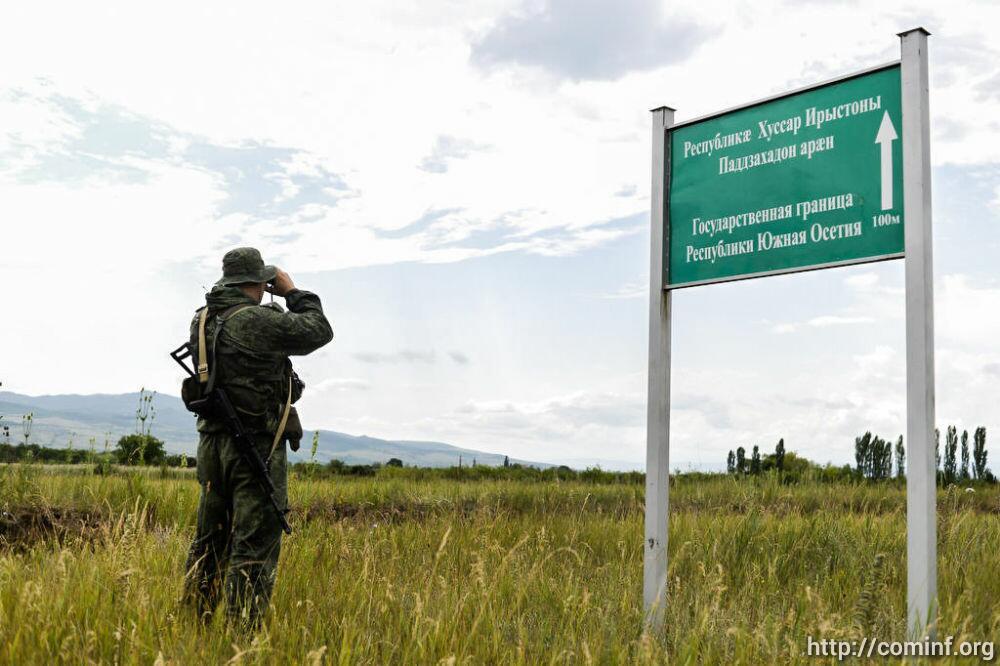
Members of the state commission presented their own map, pointing out its discrepancies with the description of the border, which was presented to parliament in 2019.
“The opposition is holding back”, explains a source in the South Ossetian government, commenting on the opponents’ claims.
“During the years of the USSR, the borders moved in one direction or another. To put it mildly, the opposition interprets the situation in a favorable light for itself. It speaks only of the western direction of the borders, where allegedly South Ossetia has lost, but does not speak of the southern direction, where our republic has significantly won within the borders”.
As for the so-called “map”, according to which South Ossetia allegedly loses 200 square km, the source in government states that this refers to the “description of the state border between the Republic of South Ossetia and Georgia”, prepared in Pyatigorsk by order of the head of the commission Murat Dzhioev. Anatoly Bibilov “made significant changes and additions beneficial for our state” to this document, and only then sent it to parliament. The opposition deputies, according to the source, were aware of all the details, but they politicised the issue “during the pre-election struggle for power” (the presidential elections in South Ossetia will take place in the spring of 2022).
The map presented to the parliament by the opposition, according to the source, is unreliable, since for its compilation “the opposition hired some kind of cadastral specialist, not a professional cartographer”.
Bibilov, in his speech, reiterated the previously expressed arguments that the 1922 Decree has no legal force, since it was adopted before the formation of the USSR.
“I said it before and I will repeat it – if you mark the border according to the 1922 Decree on the map, then Gujabar, Orchosan and some other settlements remain outside South Ossetia”, Bibilov said.
During the president’s speech, the deputies shouted insults in an aggressive manner. The State Guard officers intervened in the conflict, but Bibilov asked them to leave the meeting room.
He called the opposition’s statements erroneous and pointed out violations in the activities of the commission, recalling that it is still working without an approved regulatory framework. Accordingly, its work is illegitimate, regardless of the results of its activities.
On several occasions, representatives of Nykhas and the People’s Party tried to disrupt the speech of the President, who, in turn, also used accusatory rhetoric against his opponents.
Political motives
The current parliamentary opposition is represented by supporters and former officials who were part of the teams of the previous presidents of South Ossetia Eduard Kokoity and Leonid Tibilov.
One of Bibilov’s main opponents, David Sanakoev, worked for many years as the Commissioner for Human Rights during the presidency of Kokoity. Under Leonid Tibilov, he was appointed head of the Foreign Ministry. In 2015, the parliament, headed by speaker Bibilov, expressed a vote of no confidence to Sanakoev, and he was removed from office.
Then he was appointed state adviser to President Tibilov and the president’s plenipotentiary for post-conflict settlement. Since 2016, Sanakoev has been a member of the third state commission for the delimitation and demarcation of the state border with Georgia. However, until now, he has never publicly expressed concern about how and where the borders are, whether there is a law on the state border, etc.
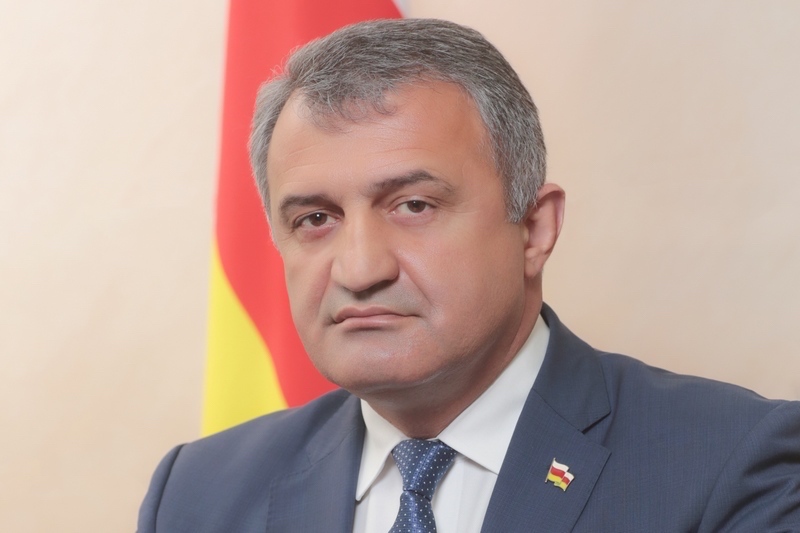
Bibilov addressed similar claims to the Nykhas deputy, ex-mayor of Tskhinval Alan Alborov. Bibilov said bluntly that he was not interested in the borders of the capital of South Ossetia, on the contrary, Alborov was engaged in personal enrichment – opening shops and gas stations.
The leader of the Nykhas party, Alan Gagloyev, was reminded by the president of his past activities – work in the KGB of South Ossetia. According to Bibilov, Gagloyev also had enough authority to protect the borders of his homeland.
Inherited from the president and the “People’s Party” in which supporters of Eduard Kokoity are concentrated. According to Bibilov, if at one time the previous authorities were engaged in their direct responsibilities, then there would be no current problems. However, for some reason, the republic does not even have a law “On the State Border”, and the previous state commissions, created since 2009 by decrees of Kokoity and Tibilov, existed only on paper and their inaction led to a crisis in the village of Tsnelis.
Such criticism hurt the opposition, which again made accusations against Bibilov. The dialogue did not work out, the parties failed to have a constructive interaction.
A day later, one of the People’s Party deputies, former bodyguard of Eduard Kokoity, Dzhambolat Medoev, made a post on Facebook, proposing to start an impeachment of President Bibilov, but this initiative did not have any serious consequences.
Opinions were divided again. Some of the users of social media like Medoev’s idea, while others scoffed at the deputy, pointing out that he did not know the laws and constitution of his own country – there is no Constitutional Court in the republic that could make decisions on such issues.
In addition, according to other residents of the republic, there are no grounds for impeachment and unfounded accusations against Bibilov and they are nothing but byproducts of the pre-election campaign.
The political overtones in the confrontation between the parliamentary opposition and the president are quite obvious – only those deputies who are in the circle of former presidents Kokoity and Tibilov make accusations of “treason” against Bibilov. The other two parliamentary parties “Unity of the People” and the Communist Party of South Ossetia do not participate in the conflict and are observing the situation from the outside.
An old problem – what eyewitnesses say
Public figures and heads of districts who know the details of the situation also commented on the sharp disputes between opposition deputies and the president.
The former head of the Znaur region, Vitaly Pliev, recalled that the crisis on the border was the result of the indifference and negligence of the former leaders of South Ossetia. According to him, since 2012, residents of the Tsnelis village have repeatedly written collective letters to President Leonid Tibilov and complained that Georgian servicemen freely come to their homes.
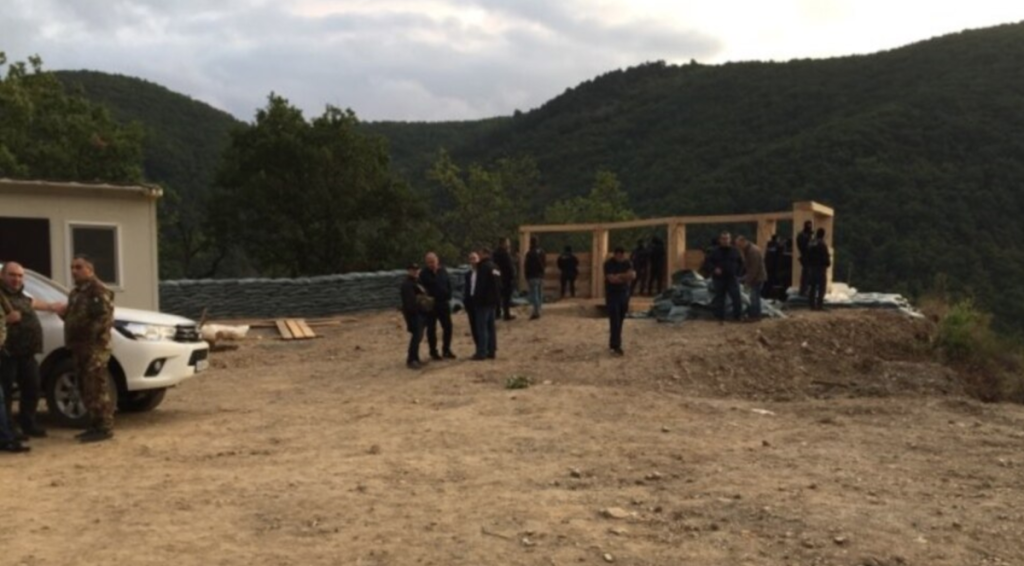
“They wrote letters, but they didn’t get an answer to any of them. And the border delimitation commission, one might say, existed only on paper. Some members of the commission of that period did not even know that they were members of it”, Pliev said.
A few years ago, a resident of the Tsnelis village Alan Dzhioev said that “the problem did not only arise today or only under Bibilov, the indignant population of Tsnelis sounded the alarm back in 2013. Appeals were made to the then President Leonid Tibilov, but all in vain”.
Five years later, in 2019, Tbilisi set up a checkpoint near the village of Tsnelis. According to local residents, the preconditions for the installation of the post existed long ago, and during the presidency of Bibilov, the post appeared, thus becoming the object of criticism from previous officials and deputies, who were also responsible for the situation.
“Therefore, if the current opposition really wants to establish the truth, then it is necessary to start looking for the guilty, at least from 2009. Then, they will be able to avoid accusations of political speculation and bias”, some of my interviewees in Tsnelis and Tskhinvali believe.
It is too early to put an end to this confrontation, and, it seems that the mutual accusations will continue.
Georgian expert: “Georgia cannot participate in the process of demarcation of the border with South Ossetia”
JAMnews, Tbilisi
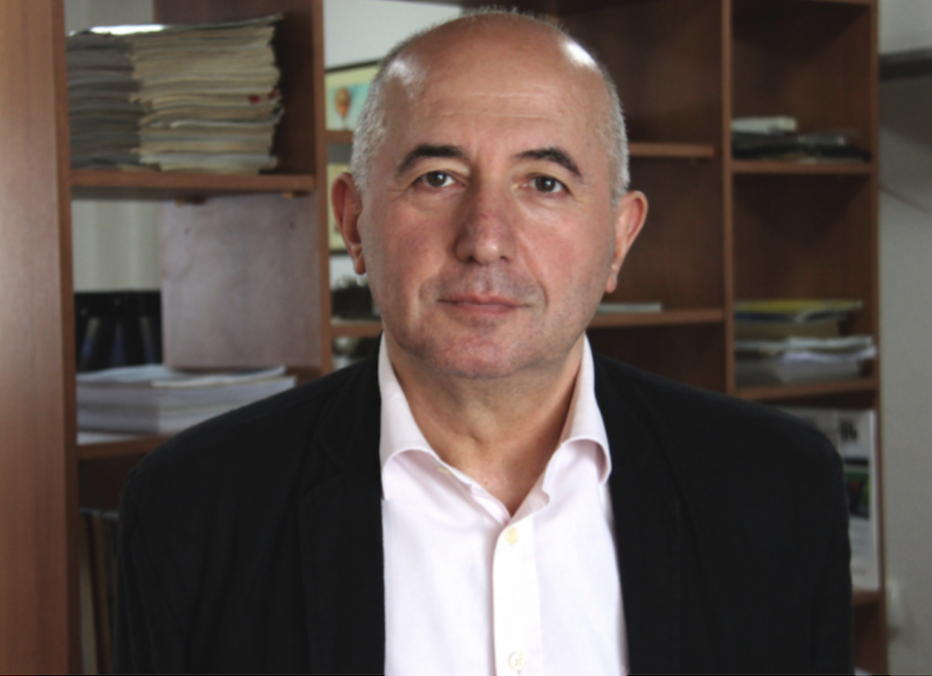
Paata Zakareishvili, a Georgian conflict expert and former State Minister for Reconciliation and Civil Equality, commented on the issue of borderisation and disputes over the border in South Ossetia for the Tbilisi edition of JAMnews:
“Borderisation is currently taking place unilaterally – the de facto government of South Ossetia is trying to involve the Georgian side in negotiations on the demarcation of the so-called South Ossetian border.
They believe that they are independent and that an independent state should establish borders with the neighboring state – Georgia.
Since Georgia does not recognize the independence of South Ossetia and considers this territory to be occupied by Russia, therefore, Georgia is completely correct in saying that it is unacceptable for it to participate in this process.
The process of borderisation does not mean the expansion and appropriation of a larger territory – the Ossetian side, laying the border, unambiguously follows the latest maps of the Soviet period.
The South Ossetian opposition claims that the maps and territories proposed by Bibilov to the parliamentary commission do not correspond to the maps and territories of 1924, when the South Ossetian Autonomous Region was first formed and recognized.
However, they do not take into account that South Ossetia in this form (as part of the Georgian SSR) as such did not exist at that time, there was the Transcaucasian Federation. Only in the 1930s were the internal borders of Georgia were finally established.
In particular, the parliament accuses Bibilov of unwillingness to include more territory in South Ossetia, while Bibilov says that this is impossible. According to him, this will cause additional tension, so “it is better to protect what we have than to demand what we do not have”.
Added to this is the fact that the Georgian side set up a checkpoint in the village of Tsnelisi two years ago. This made the situation even worse.
Bibilov’s actions are orchestrated by Russia. The Russians and Bibilov look at the matter more pragmatically – what you have is yours, and you should not demand what you do not own, because you can lose what you have.
The parliamentary opposition, which tries to challenge Bibilov in everything he does (and this may be part of the election campaign) demands from Bibilov the impossible – to ask more from Georgia than Tskhinvali currently controls.
Terms, place names, opinions and publication ideas do not necessarily coincide with those of JAMnews or its individual employees. JAMnews reserves the right to remove comments on posts that are deemed offensive, threatening, violent or otherwise ethically unacceptable.


















